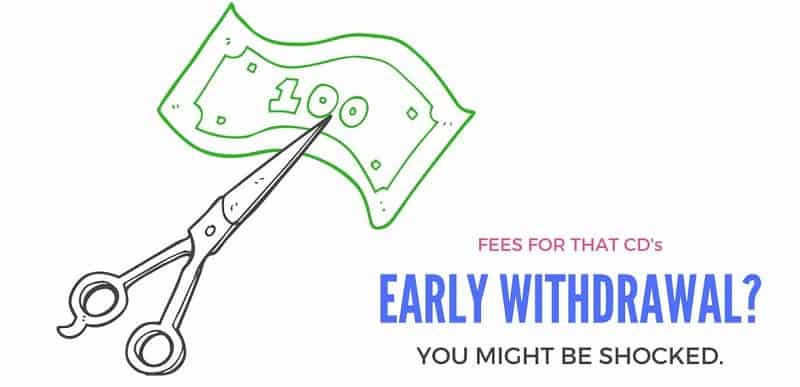 CDs are great investments for those who prefer to keep their money safe. Funds can be FDIC-insured, and you’ll earn more interest than you would from a savings account. But CDs are designed to be longer-term investments. Unlike your checking account which allows multiple deposits and withdrawals, CDs are meant to be left alone. Cashing in or canceling a CD before it matures can cost you.
CDs are great investments for those who prefer to keep their money safe. Funds can be FDIC-insured, and you’ll earn more interest than you would from a savings account. But CDs are designed to be longer-term investments. Unlike your checking account which allows multiple deposits and withdrawals, CDs are meant to be left alone. Cashing in or canceling a CD before it matures can cost you.
However, there are a few ways (and reasons) you may be able to withdraw your money from a CD without getting dinged by penalties. One way is to use a No-Penalty CD (more on that below). But that’s not your only option.
Keep reading below to find out what an early CD Withdrawal Penalty & How to Avoid it.
What Is a CD?
A CD is a type of deposit account that typically earns higher interest rates than traditional savings accounts, but comes with a fixed withdrawal or maturity date.
Banks issue CDs for a set amount of money and a set amount of time. (Credit unions do, too, but they call them “share certificates.”) Some have minimum opening deposit requirements, but the best ones don’t.
As with any savings account, you’ll also want to look for CDs with high interest rates. Those that are interested in CDs can earn a higher yield than the one tied to their traditional savings account. But you could lose money if you can’t keep the account open until maturity.
There are a variety of different accounts for CD’s so be sure to check them out!
Reasons for CD Penalties
Early withdrawal penalties can vary depending on the length of the CD term and the bank offering the account. CDs with longer terms usually pay higher rates, but the early withdrawal penalties for these accounts tend to be harsher.
Banks wants you to keep your money invested for a set period, such as six months to a year or even perhaps five years. It’s willing to pay you a higher interest rate return if you do so. The bank benefits from having certainty about how long it can use your money.
Banks pay interest on your deposit on a regular basis (typically monthly) until the CD matures. That period of time is called the term length, and it usually ranges from six months to five years.
How to Avoid CD Early Withdrawal Penalties
If you absolutely must cash out early, be sure to see if there are ways to avoid penalties. First, it never hurts to ask. The staff might waive the penalty for you, particularly if it’s an emergency and you’re at a friendly institution or a smaller credit union. Otherwise, all they can do is say no.
As an alternative to early withdrawal, consider building a CD ladder. Laddering CDs refers to timing your CDs’ maturity dates so you have some of the CDs maturing every few months.
A CD ladder is a series of multiple CDs with varying terms. By laddering them, you may take advantage of higher rates while maintaining access to your funds.
Going with an account that’s more liquid could also work in your favor. To avoid an early withdrawal penalty, stash money in a money market or high-yield savings account that doesn’t apply an early withdrawal penalty.
Some CDs allow for early withdrawal penalties to be waived outright in extenuating circumstances, such as:
- Death
- Disability
- Legal incompetence
No-Penalty CD’s
Early withdrawal penalties are standard, but some CDs let you withdraw virtually at any time for free. These no-penalty CDs don’t have the highest rates, but you can find yields comparable to high-yield savings accounts.
A big positive even though the rate is generally lower is that your rate is locked in.
 |
 |
Conclusion
If you would like to better your financial future for your business, then definitely keep the checklist above in mind. Staying organized and being aware of your maturity date will ensure you withdraw your savings at the end of your term.
CDs often auto-renew. In other words, you don’t want to end up facing an early withdrawal penalty when a new term automatically begins but you want to reinvest your money in a different account!
Additionally, If you are interested be sure to check out our list of bank bonuses, saving rates and CD rates!


